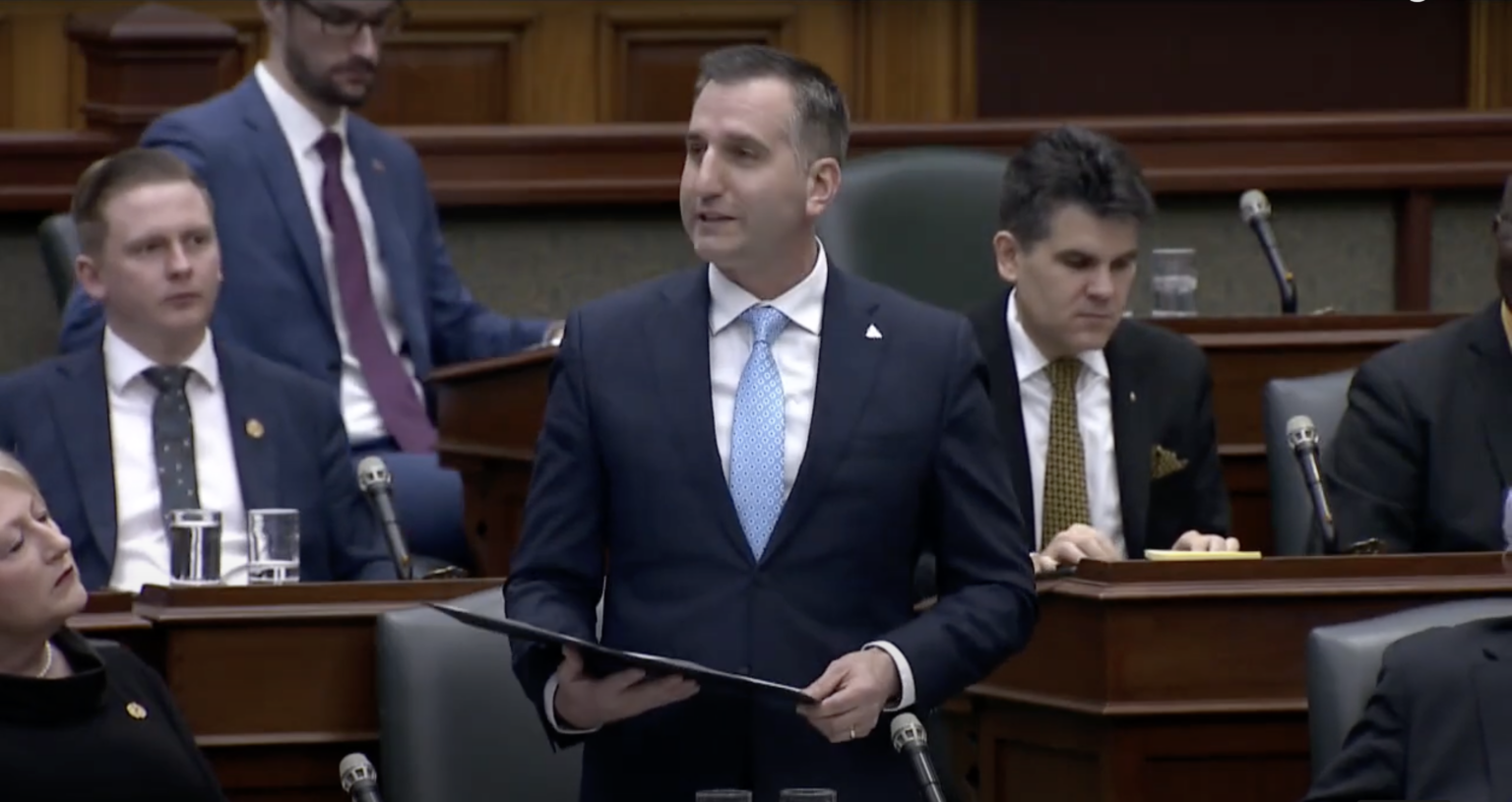At a national convention on climate change adaptation, an Ontario government minister didn’t once mention climate change.
Trevor Jones, Ontario’s associate minister of emergency preparedness, addressed a crowd at the Canadian Emergency Preparedness and Climate Adaptation (CEPCA) Convention, held in Ottawa last week. Jones focused primarily on government spending related to providing emergency equipment to rural communities, but did not address the underlying causes of climate change. Jones, a former Ontario Provincial Police officer and municipal councillor, was elected in 2022 and named to his post in June.
The two-day event featured wide-ranging discussion on emergency management in the context of a warmer climate, with only limited mention of climate change’s root causes.
Subscribe to our newsletter
Stay up to date with DeSmog news and alerts
Outside of the conference, Jones publicly opposes two key climate change mitigation solutions: gas taxes and carbon taxes.
In the fall of 2023, Jones introduced a private members bill to the Ontario legislature to eliminate carbon taxes from grocery items. He has also argued on social media that carbon taxes make groceries more expensive. The impact of carbon taxes on the cost of food has been found to be negligible — particularly given that about 90 percent of the revenue it generates is actually returned to Canadian households. Erratic weather caused by climate change is likely playing a far more important role in driving up food costs in Canada.
Much of Jones’ address focused on his government’s plans to bolster the province’s emergency management capabilities. He spoke mainly about improving field response during flood or fire disasters, rather than what the province might do to lessen the likelihood of such disasters in the first place. “Successful operations depend on knowing what the mission objective is, having a plan to deal with it, maintaining clear communication throughout, and working in cooperation with one another,” said Jones.
The absence of climate change solutions was made all the more conspicuous given Jones represents an agricultural region of Ontario, and previously lobbied for the Ontario Greenhouse Vegetable Growers. A report commissioned by the Ford government revealed that the province’s agricultural sector is particularly vulnerable to the effects of climate change. As reported by the Narwhal earlier this year, the report indicated Ontario may not be able to grow certain varieties of apples or grapes, and that prolonged heat waves by the 2080s could kill a quarter of the province’s cows and pigs.
DeSmog attempted to ask Jones questions about addressing the root causes of climate change in the context of emergency preparedness, but was rebuffed by an aide.
Jones only discussed weather in the context of his experience as a police officer, in responding to complaints between neighbours about shoveling snow onto each other’s driveways, as well as unspecific “violent weather phenomenon” causing property damage or loss of life.
Jones’ apparent inability to link emergency preparedness with the climate crisis appears to be consistent with the government of Premier Doug Ford more broadly. During the extreme and devastating wildfires that swept through the province in 2023, Ford refused to link wildfires with climate change, criticizing calls to do so as “politicizing wildfires.” At the time, Ford suggested half the fires had been caused by lightning strikes, while the other half caused by unattended campfires. While these may have caused specific fires, experts say that climate change is creating the conditions to increase both the likelihood of lightning strikes and the dry environments that feed wildfires. What lights the match is of secondary importance when tinderbox conditions have become the new normal. Scientific analysis of the record-breaking 2023 wildfire season placed the blame squarely on anthropogenic climate change above all else.
While Jones touted Ontario’s new and updated Provincial Emergency Management Strategy and Action Plan, the 37 page document only makes five references to climate change, and doesn’t advocate lowering emissions as a means to mitigate the risk of climate-related disasters or emergencies. In listing his government’s accomplishments in emergency preparedness, he listed purchasing a thermal imaging drone to aid in search and rescue operations and a trailer-mounted generator to provide backup power. None of the items listed by Jones were aimed at mitigating the effects of climate change, lowering greenhouse gas emissions, or identifying regions of the province most likely to be impacted by climate change related disasters.
Subscribe to our newsletter
Stay up to date with DeSmog news and alerts






